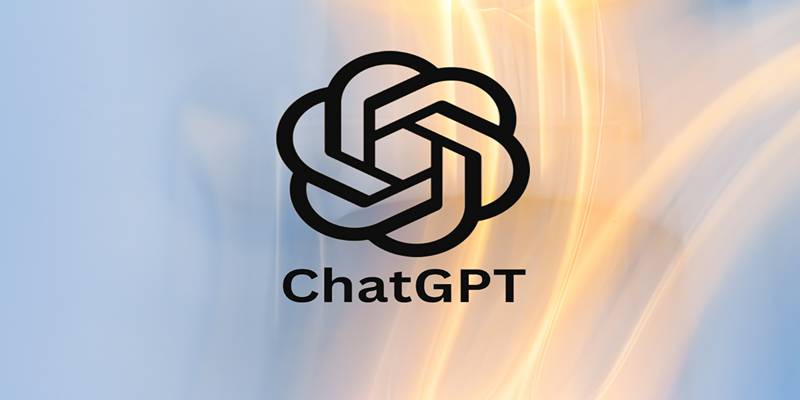Advertisement
Content creation has evolved dramatically over the past few years. Gone are the days when writers had to spend countless hours brainstorming, writing, rewriting, and editing every single piece from scratch. In today’s fast-moving digital landscape, content writers are expected to produce a high volume of engaging, SEO-friendly, and polished content—often under tight deadlines. This rising demand has fueled the adoption of artificial intelligence as a powerful ally in the writer’s toolkit.
AI writing tools are no longer just novelty software. They have become essential assistants that help streamline the writing workflow, cut down on repetitive tasks, and enable writers to focus more on creativity and strategy. From improving grammar and sentence flow to generating full-length articles and optimizing them for search engines, these tools do a lot of the heavy lifting.
Let’s explore 8 powerful AI tools that content writers can use to enhance productivity, reduce fatigue, and deliver quality content consistently.
HIX AI stands out as a full-spectrum writing platform designed to support users from ideation to final draft. Built on GPT-4, one of the most advanced language models, HIX AI delivers high-quality, human-like text tailored to your specific needs. Writers can use HIX AI to generate article outlines, complete long-form content, paraphrase sentences, and refine tone and structure.
What sets HIX AI apart is its smooth integration of templates for common writing formats—blogs, emails, web copy, and product descriptions—which makes it ideal for content professionals who juggle diverse content types daily. The AI understands user intent and adapts output accordingly, making it feel less like a machine and more like a trusted writing partner.
No content writer wants to be slowed down by grammar errors or awkward phrasing. Grammarly helps prevent that with its advanced real-time editing features. It goes beyond standard grammar and spell checks by assessing tone, clarity, and engagement.
Writers receive contextual suggestions on word choice, sentence structure, and passive voice correction. Grammarly’s tone detector is also helpful for adjusting formality based on audience expectations. Whether you’re writing a blog post or a business report, Grammarly helps ensure your work remains polished and professional.

When speed meets scale, Jasper AI delivers. Designed specifically for marketing-focused content, Jasper allows writers to quickly create ads, blog content, product pages, and social media captions. It offers hundreds of writing templates with built-in keyword optimization and brand-consistent tone settings.
What makes Jasper valuable is its adaptability. It’s capable of understanding your instructions and producing entire paragraphs or articles that are relevant, grammatically sound, and ready to publish. It makes it ideal for agencies, e-commerce businesses, and creators dealing with high content volume.
Surfer SEO is more than just an SEO checker. It’s a real-time optimization tool that helps writers align their content with search intent and outperform competitors. It offers keyword density analysis, content scoring, and structural recommendations based on top-performing pages.
Instead of writing first and optimizing later, Surfer allows writers to build SEO-strong content from the ground up. It improves visibility, saves time, and increases the likelihood of ranking on the first page of Google. Its integration with Google Docs also helps writers work within their preferred tools while getting live SEO feedback.
Writesonic is ideal for multi-platform writers who need to produce varied content quickly. Its AI engine supports everything from short product descriptions to long-form blog content. The interface is beginner-friendly, and its output is clean and relevant to the task at hand.
What sets Writesonic apart is its range of writing styles. It helps with persuasive copy, informative blog intros, conversational social posts, and much more. Writers who manage multiple brand voices or niches will appreciate how easily it adapts across projects.
Copy.ai is a favorite among copywriters for a reason. It’s fast, smart, and creative. Instead of generating generic copy, Copy.ai provides compelling taglines, meta descriptions, ad hooks, and more. This tool is especially useful for writers who want fresh takes on common ideas or need inspiration when stuck.
It helps eliminate creative fatigue by offering new directions that still align with your core message. For teams that need to test multiple variations of headlines or CTAs, Copy.ai delivers results in seconds. Its quick-fire content generation also allows teams to test variations of headlines or calls-to-action in seconds—perfect for A/B testing and fast-paced campaigns.
Writers often juggle multiple drafts, research notes, content calendars, and outlines. Notion AI makes it easier by combining content generation with workspace management. You can draft, edit, brainstorm, and organize—all in one place.
The AI features include summarization, sentence expansion, grammar suggestions, and text clean-up. What’s more, since it’s built into the Notion platform, everything stays organized in real time. It eliminates the need to jump between apps or lose track of content stages.

QuillBot is a paraphrasing tool designed to improve clarity and eliminate redundancy. When a sentence feels clunky or overly complex, QuillBot offers several alternate versions that maintain meaning while improving flow. It also has a built-in summarizer, citation generator, and grammar checker.
For writers repurposing content across formats or needing to simplify technical writing, QuillBot saves time and improves readability. It’s a lightweight tool but incredibly powerful during the revision phase of writing. Its intuitive interface makes it especially useful for writers who want quick results without a steep learning curve.
The future of content writing lies in intelligent collaboration between humans and machines. With tools like HIX AI, Grammarly, Jasper, and others, writers can automate the routine and focus on what truly matters—original thought, unique tone, and storytelling.
If you're looking to increase output, meet deadlines with less stress, and maintain consistent quality, adopting these AI writing tools is the way forward. Embrace the change, sharpen your workflow, and watch your writing evolve into something faster, smoother, and more impactful.
Advertisement

Explore how HIX AI and GPT-4 work together to automate writing tasks, boost content quality, and save valuable time.

Explore OpenAI’s technologies, ethical AI practices, and their impact on education, innovation, and global AI development.

Discover 7 questions and requests that ChatGPT is unable to answer due to privacy rules, ethics, or tech limitations.

Snowflake’s text embedding models are revolutionizing data management by making machine learning accessible within SQL environments. Learn how these models are reshaping business operations

Google Veo 2 review highlights its advanced video generation tool capabilities while raising serious AI video model concerns

What is Apple’s MM1 AI, and how will it change Siri and your device experience? Learn how MM1 is designed to bring intelligent, on-device AI to Apple products

Discover the top features of the ChatGPT iOS app, including chat sync, voice input, and seamless mobile access.

The industrial robotics market is projected to reach $291 billion by 2035, driven by advances in technology, factory automation, and rising global demand for smarter production systems

Streamline proposal writing with ChatGPT while improving structure, tone, and impact to increase your chances of success.

Learn why FraudGPT is a growing cyber threat and follow 10 essential steps to protect your personal and business data.

Explore 5 free AI tools powered by ChatGPT that help you write better emails and summarize inbox content in seconds.

Want robots that understand natural language? Discover LeRobot by Hugging Face—an open-source library connecting AI models with real-world robotics systems